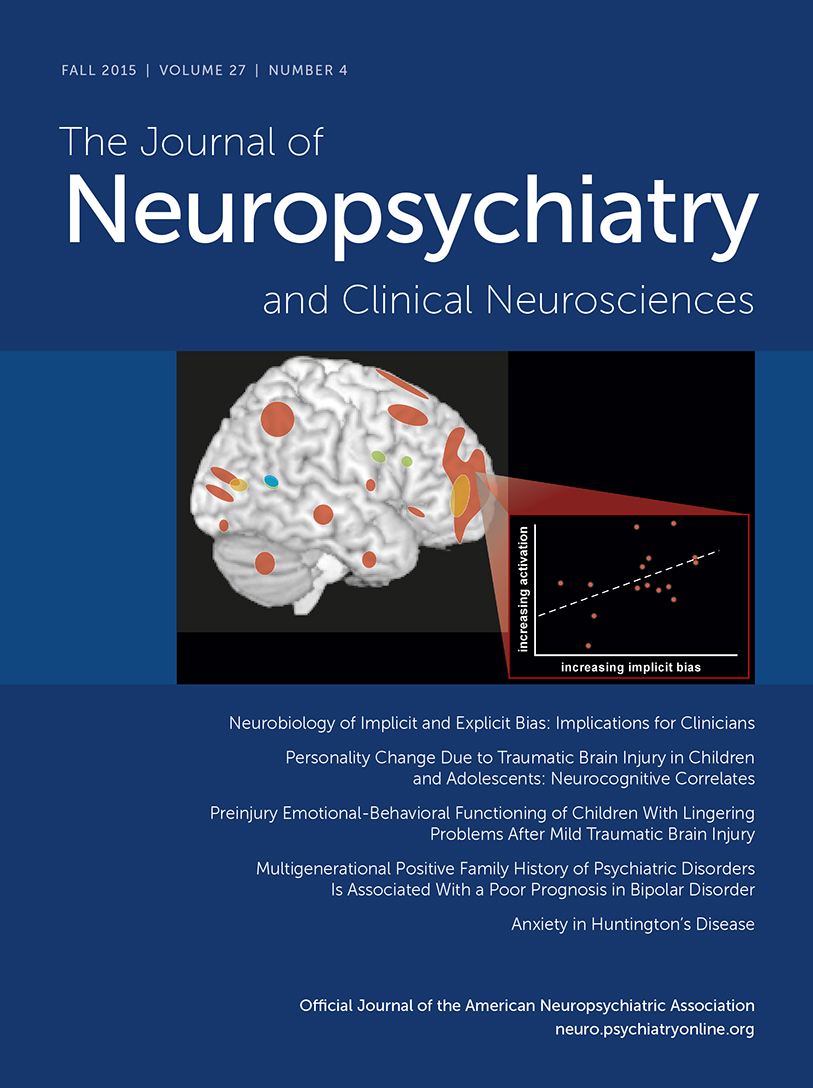Preinjury Emotional-Behavioral Functioning of Children With Lingering Problems After Mild Traumatic Brain Injury
Abstract
This study aimed to characterize preinjury emotional-behavioral functioning in pediatric patients with lingering problems after mild traumatic brain injury (TBI). The clinical case series design included 278 patients 8–17 years old. Parents retrospectively rated children’s preinjury emotional-behavioral functioning on a broadband questionnaire. The rate of clinically significant preinjury anxiety was elevated compared with national norms. The number of previous TBIs was associated with clinically significant preinjury externalizing problems, suggesting a link between externalizing disorders and mild TBI exposure. Premorbid emotional-behavioral difficulties may play an important role in the establishment or maintenance of lingering symptoms after pediatric mild TBI.



